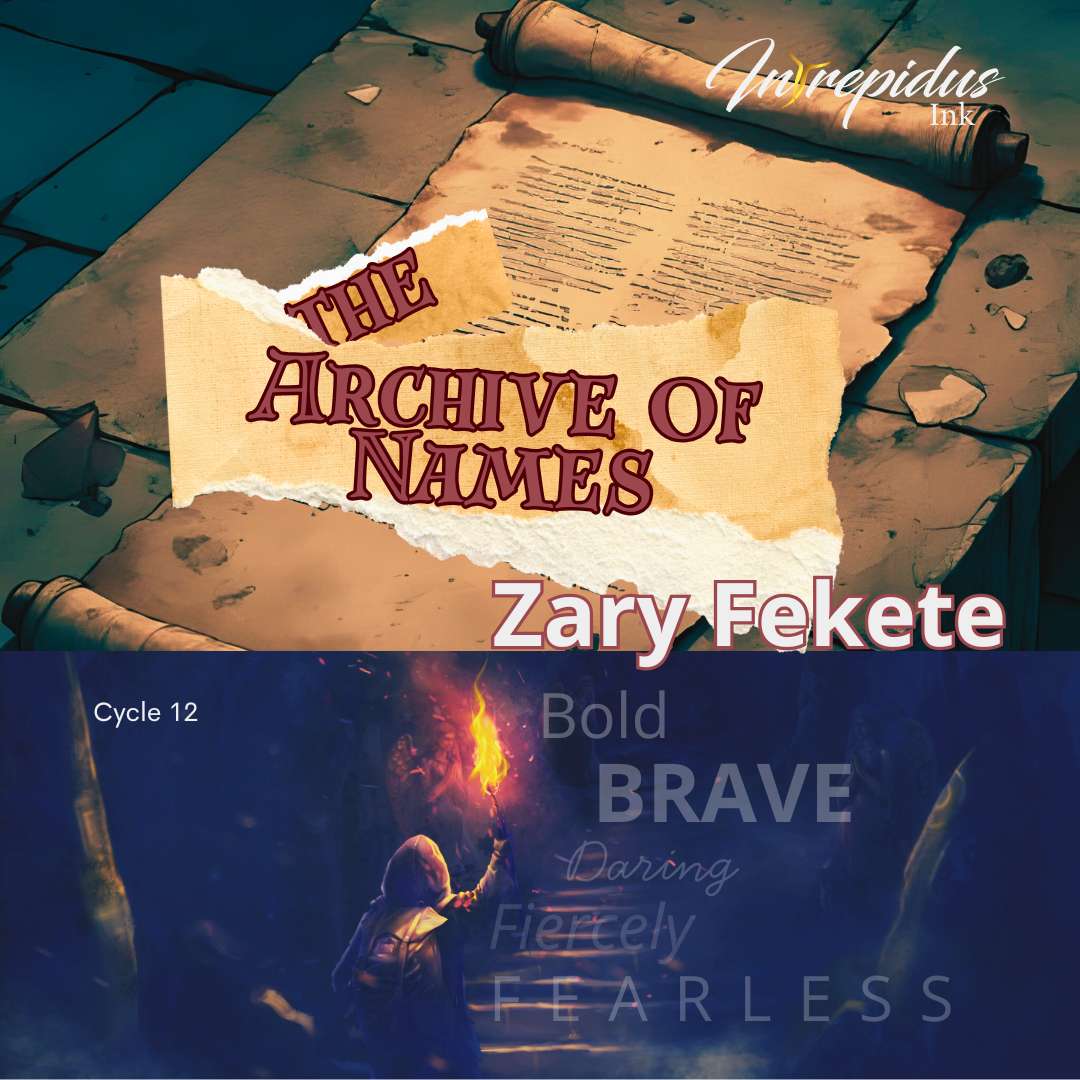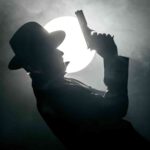

Action Adventure
V
isha screwed the silencer onto her Glock-19 and rested its tip on the SUV’s steering wheel. She aimed past the windshield and fixed her sights on Igor’s forehead. Visha wore all black: her lean jumpsuit, boots, gloves, and a scarf that concealed a shock of blond hair. Everything was black. Igor would never spot her on a cloudy, moonless night. Her target, a slight, pinch-faced man with rounded shoulders, sat in a coffee house eating steak and fries a sultry half-hour’s drive from Charleston. Derek, a former off-book Contra commander, sat across from Igor. He wore a buttoned-up trench coat and filled his side of the booth like a retired NFL lineman. The odor of cooked meat wafted out of the diner and mingled with the SUV’s new car smell.
Igor scrunched up his face and yawned. No doubt he was ticked at Putin for sticking him on a job that didn’t need a hitman and didn’t pay. Visha tightened the grip on her weapon. That’s what the SOB lived for, the big paydays, like the day he gunned down Anton.
Visha had nightmares of sitting with their little girl in Anton’s car, of Igor holding a gun to the back of Anton’s head, of her screaming, of Anton crumbling to the ground, of Igor disappearing into the crowded Donetsk marketplace. Now, at six years old, when Anastasia asked, “Is daddy coming home?” Visha could only say, “I don’t know.”
Igor turned toward the window, giving Visha her first full look at his face—the fierce, sunken eyes, the frown worn like a mask. A stabbing pain shot through her. Her throat tightened. She struggled to breathe. Her hand trembled, and she looked down. What was her finger doing on the trigger? Had she blanked out? Was she losing it? There was no excuse for this—the FBI sent her to assist with an arrest. She had no business making like she was going to finish him off. She’d forgotten her resolve to never kill except in self-defense. She took several deep breaths and holstered her gun.
The FBI had heard during a wiretap that Derek would deliver a thumb drive to Igor. The memory stick contained proof of an illegal real estate deal in the works between a top U.S. official and a Russian oligarch. Visha’s job was to alert her team when the two left. By then, the handoff should have occurred. The FBI would jump in and bust the pair separately. They’d ram Igor’s pickup, then grab and cuff him before he could destroy the drive. Derek, they’d just pull over.
Visha studied her targets’ immediate surroundings: the drooping shrubs along the front wall, the sagging eaves, the flaking paint. She stopped.
She tilted her head toward the microphone attached to her collar and called her Supervisory Special Agent. “Something’s not right.”
“OK?”
“The window frame where the targets are sitting looks newer than the others. And the glass is darker.”
“Could be anything.”
“Sure, like?”
“A trick of lighting?”
“Negative.”
“A repair job?”
“Maybe. But what if someone put in bulletproof glass?”
“Why would they?”
Visha signed off and yanked out her earbuds. He knew a Klansman ran the place and still acted like nothing could be wrong. The jerk never listened. She’d better watch out for herself.
She picked up her binoculars and trained them on Derek. Why had he loosened only one button on his coat when his forehead was covered with sweat? And in this weather, why was he wearing a coat in the first place?
When the waitress came to the table with more coffee, Igor held up his hand, waited for her to walk away, then leaned his head toward his collar. Probably radioing his lead that he had the thumb drive. They’d leave soon.
Visha stared at Igor for fifteen minutes. Her heart beat faster, faster. This wasn’t like her—the nerves, the impatience. She was used to stakeouts, used to dangerous targets, but this one felt…different. Maybe her SSA was right. He’d said the job was too personal for her, but then he’d given in and put her on the assignment. She looked at her watch. Finishing this mission so she could go pick up Anastasia and head home couldn’t happen soon enough.
Something small whipped past her windshield—a bird? No, not at night. No kids in sight throwing rocks. A drone, protection for Igor and Derek? Whatever it was, she had nothing solid to report, so she wouldn’t inform her SSA. He’d just think she was jumpy.
Visha turned back toward the diner. Igor stood next to their table, watching Derek struggle to his feet. Derek loosened the buttons on his coat. He held something? Her breathing slowed.
She radioed her SSA: “The targets are leaving the diner,” she whispered. “I’ve lost my visuals on them.”
Visha covered her weapon with one hand and cupped her ear with the other. The creaking sound of hinges on the diner’s front door and the rattle of the screen door banging against its jamb were followed by the crunch of footsteps on gravel. The two men, laughing and chatting, moved toward her. They were not walking toward their pickups at the other end of the parking lot. They could be onto her.

The men walked past Visha, going silent except for the clicks of pump-action shotguns. A raucous blast of gunfire rocked the SUV. Shards of windshield glass rained down like hailstones through a haze of gun smoke.
“Mommy won’t be coming home tonight,” said a man with a thick Russian accent—Igor.
“Daddy won’t either,” Derek replied. “Let’s check the front seat.”
The hitmen moved close.
“No Visha, no blood!” Derek said. “Just a bunch of black clothes and chunks of plastic.”
The two men shoved fresh shells into their shotguns. They walked toward the rear of the vehicle, blasting bullets into its back seat that penetrated its liftgate. The cracking sound of metal fragments tearing past her head froze Visha. She winced when a pellet nicked the back of her hand. They’d be on top of her in a second.
Visha stood up from behind the SUV, her weapon pointed straight. She shouted, “Drop them—Now!”
She watched Igor and Derek stop and swing their shotguns toward her. She squeezed the Glock’s trigger, firing two bullets into each of their foreheads.
“Visha, come in.” her SSA radioed.
She dropped to the ground and didn’t reply. Igor, for sure, would have eyes and ears somewhere close. That drone she thought she glimpsed—it could be on her right now. She should stay quiet but not stay put. She shouldn’t go near any escape routes the hitmen would have used; they could have backup nearby.
“We heard gunfire,” her SSA came again. “We’re headed to you.”
Visha listened for signs of trouble. Hearing none, she got to her knees, checked around, then dodged behind parked cars and raced through cypress trees near the road that led to her team. She jumped onto the road when she saw the Humvee bearing down and flagged it to a stop.
Visha hadn’t trusted anyone since Anton’s death. No one knew that she sometimes used a mannequin decoy, a carefully dressed replica of herself. While the hitmen walked to the diner’s door, she pulled the look-alike out of the vehicle’s spare tire well, placed it in the driver’s seat, slipped out of the SUV’s liftgate, and, just in time, crouched behind her vehicle.
On their way back to headquarters, Visha hugged her knees to her chest and leaned her head against the backseat window. Her SSA sat next to her.
“We need to figure out how you were compromised,” he said.
“I already have.”
“So?”
“So, the Russians must have known we tapped their phones. I’d bet they planted the conversation about the thumb drive. Probably figured I’d get on the case once I heard Igor was involved. They wanted me dead; they think Anton and I knew too much about their dirty work on the Ukrainian border. And it looks like they had intel on what I’d be doing.”
“Maybe. Go on.”
“By the time Igor sat down inside the diner, he’d for sure confirmed I was in my front seat. Right after I saw the fixed-up window, I took cover behind my back seat. While waiting for them to leave, I spotted a drone and put my look-alike behind the steering wheel. When their drone camera found my mannequin, they came after me.”
“O.K. Anything else?”
“Later,” she said and stared out the window.
He was just picking her brain. Besides, she had other things to think about. Like her guilt. Sure, the hitmen were dead, and if she hadn’t taken them out, she’d be dead. Her team thought she’d done great. That was as good as it got. Wasn’t it?
But…she had been way out of line when she pointed the gun at Igor through the window. They’d pounded it into her; you didn’t aim the gun until you were in danger or touch the trigger until you were ready to shoot. Her boss would fire her if he knew. Then maybe, with all the emotion, this wasn’t the right line of work for her anymore. Especially with Anton gone. The Russians could come after her again, and she had Anastasia to think about.
When she walked into the field office, the staff stood and cheered. She nodded, forced a smile, and headed toward her cubicle. South Carolina’s regional boss caught her in the hallway and took her aside. “I’ve squared things away with the Sheriff’s Department,” he said. “They agree you shouldn’t have waited around to give a statement.”
“Right,” she replied. “The Russians could still have been on us.”
“Yes,” he said. “Have a seat.”
“Thanks. I can stand.”
“So, not your first rodeo.”
“It’s my last.”
“You’ll take some time off.”
“You think so.”
In the safe house where Visha slept that night, she dreamed of Anton, of walking with him hand in hand along the Dnipro, of their Springtime treks through the Balkans, of the horse-drawn cart that took them to the hideaway in the Carpathians. Late the next morning, her first waking thought was that she had spent a night without nightmares. By the time the FBI cleared her to pick up her daughter at Grandma’s, Visha was ready to tell Anastasia about her father, ready to tell her that he would not be coming home.

An Interview with David DeLange
Intrepidus Ink: We love “Visha’s” alarmingly individual daring, and yet, she’s emotionally vulnerable. Where did you draw inspiration for her character?
David DeLange: An assignment to create a scene, in which a person is looking through a window from outside, somehow inspired the creation of the daring Visha character. But unlike many suspense thriller writers, I wanted to emphasize my main character’s humanity. Underlying this desire was my belief that the human psyche is built on contradiction; so, for example, a person may become very tough as a defense against great vulnerability. A later editorial suggestion that I keep Visha’s point of view throughout the story, plus my regular use of the third person close viewpoint, made it easier to show Visha’s humanity.
II: Your background is in academia. How does your expertise inform your fiction?
DD: My austere training in analytic philosophy helped me maintain logical consistency during my story’s difficult plot construction. It may not be obvious how challenging it was to stay within Visha’s point of view and, at the same time, surprise the reader with the story’s unexpected turn of events. More importantly, I had so much to unlearn when I began authoring short stories. Analytic discourse, unlike fiction, embodies literal exactness; it stifles nuance, subtext, innuendo, and showing versus telling. The analytic method is ponderous, not in the least poetic.
II: Please share what’s next for you.
DD: I’m finishing an overhaul of another suspense thriller, Treasures of the Anasazi. It’s the story of a down-on-his-luck Mestizo contract climber whose life is transformed after he robs an Anasazi cliff dwelling that only he knows about. Besides, I will continue a line-by-line study of my favorite short story, David Quammen’s Walking Out.
II: Thank you so much, David. We adore Visha and love that you shared her with us. Best wishes!
Author Bio

David DeLange is a former philosophy professor, a past President of the Los Angeles Audubon Society, and a retired psychotherapist. He writes in his backyard, home to many birds and four generations of Fox Squirrels who have names. “*82 Review” published two of his nature pieces. His story “Political Persuasion as Art and Craft” appeared in “Fear of Monkeys.” For more, go to [email protected].

